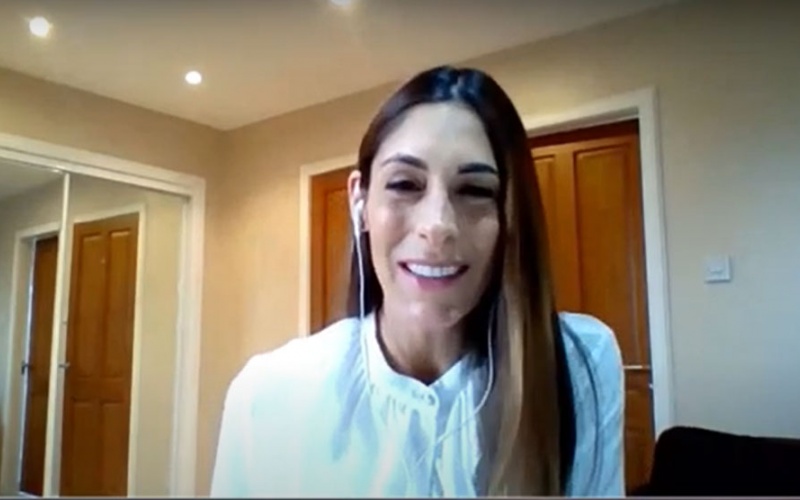
Maisa Monteiro Da Cunha is Digital & Data Engine Lead at TotalEnergies in the UK, Strategy & Business. She is based in Aberdeen, where she develops digital products for drilling and wells teams and other disciplines, informed by her broad experience within TotalEnergies. Originally from Buenos Aires, Maisa has an MEng in Industrial Engineering. She worked for local oil and gas sector companies in Argentina, before joining TotalEnergies’ Argentinian operation in 2008 during a key phase of the country’s shale gas development. She held various engineering positions covering well servicing, completions and stimulation before transferring to France, where she was responsible for preparing specific stimulation and completion studies for TotalEnergies affiliates around the world. Since then, she has held positions related to safety improvement, operational and cost optimization of drilling, completion and well servicing activities, and also worked on the successful integration of Maersk Oil’s technical standards and procedures after its acquisition by TotalEnergies in 2017, before moving to her current position.
How has digitalisation transformed the energy sector during your career?
When I started working at Total, as it was known then, in 2008, I would have never imagined that there was going to be a branch of the company dedicated to digital products or the extent of digitalization within the company itself. This has really accelerated since 2019, when Patrick Pouyanné, the CEO of TotalEnergies approved the Digital Transformation Program to start preparing for the energy transition. As a result of that, I now work in Aberdeen in the Digital & Data team.
You have just finished working on an in-house digital product called Well Guardian. How did you become involved with that and what does it do?
At Digital & Data, we have several squads developing digital tools for different users covering the various disciplines in our business, such as production, maintenance, logistics, and so on. Given my drilling and wells background, I created a digital product for my colleagues at TotalEnergies in the UK planning well interventions.
Well Guardian is a collaborative digital tool bringing the Drilling & Wells, Field Operations and Geoscience disciplines together, bridging the silos between them and consequently improving the overall efficiency and performance of the business.
It helps understand when a well needs to have an intervention and to shorten the time for preparation of a well, which can take a long time. Interventions are accelerated with simpler, more efficient planning and execution. Frustrations apparent with archaic manual processes and lack of traceability are removed. And, most importantly, all stakeholders can work collaboratively towards a common goal in an effective and transparent manner.
The well intervention team was struggling with the amount of different software they had to consult to get an overall picture of the well. They had maybe ten data sources to connect to when they were looking at the well’s history, integrity status, current production, forecast production, well alerts and so on. It was difficult to put all of this together. So, it was clear from a very early stage that what was needed by the well intervention teams was a single platform for all this data. Well Guardian provides a single source of truth and live well monitoring, generating economic business value in less than one year.
In simple terms, how does Well Guardian work?
Well Guardian helps us better understand what is going on in a well. It’s a multidisciplinary, integrated digital platform that enables data visualization and analytics. It enhances data quality and reliability by centralizing more than ten different database systems.
We also created an Alert Management Module. Well Guardian sends out automatic notifications when certain parameters deviate from normal operating conditions, when new intervention opportunities have been raised by the Well Performance team, when new well behaviour trends are detected – possible interventions – or if abnormal annuli pressures are detected. End-users can sign up to receive these notifications in their inbox, customizing their subscriptions according to their needs.
What were the main challenges in developing a new digital application like Well Guardian?
Bringing together data sources was a huge challenge. Change management is another. People have been used to working in their own silos and can be reticent to change the way they work when they are faced with their first cross-company digital project.
When you digitalize projects, then basically the Excel file, the Word document or whatever they were using for their daily tasks don't exist anymore, and you need to adapt to doing things totally differently. But once people are used to the idea that, although it may take time to implement, a digital application will make a positive impact on how they work, then your job gets a lot easier. Users need to understand the vision and roadmap of the product; as a Product Owner you must motivate not only your squad but also the users and stakeholders to keep believing what the product will do for them and the value it will unlock.
Did it take long to develop?
We actually built it in a couple of months. When we had done our proof of concept (POC) locally and its value was proven in the business, our Paris HQ requested the transfer of the product to expand to other parts of the business, and it went really well. Now Well Guardian is being deployed around the world.
Now your work on Well Guardian is done, what are you looking at now?
I can’t say too much about it at the moment, but we are currently working on a new digital application that will help us identify operational risk across the company, identify trends and allow users to focus their efforts on what is really important across the whole business.
Has the industry evolved in terms of conditions and opportunities since you started out?
Nowadays, it is completely different, even though it was only 15 years ago when I started, which is incredible. A career in oil and gas drilling may not look like the attractive option it used to be to some people, even though the industry still has many years to run. But there are many more and varied types of jobs to consider for young people compared to when I started. People can join an energy company and go into renewables, carbon capture and storage, offshore wind and solar, hydrogen, biomass… it is now so diverse! And there is also more flexibility around how we work, including in hybrid mode, which was less apparent prior to the Covid pandemic. I changed track to move into digital, which is a transferable skill that is useful in many areas. I can’t wait for further challenging projects to come along and to support TotalEnergies on achieving its energy transition goals.
*Maisa Monteiro Da Cunha explains more about how Well Guardian works in this Future Oil & Gas Innovation Spotlight presentation.

